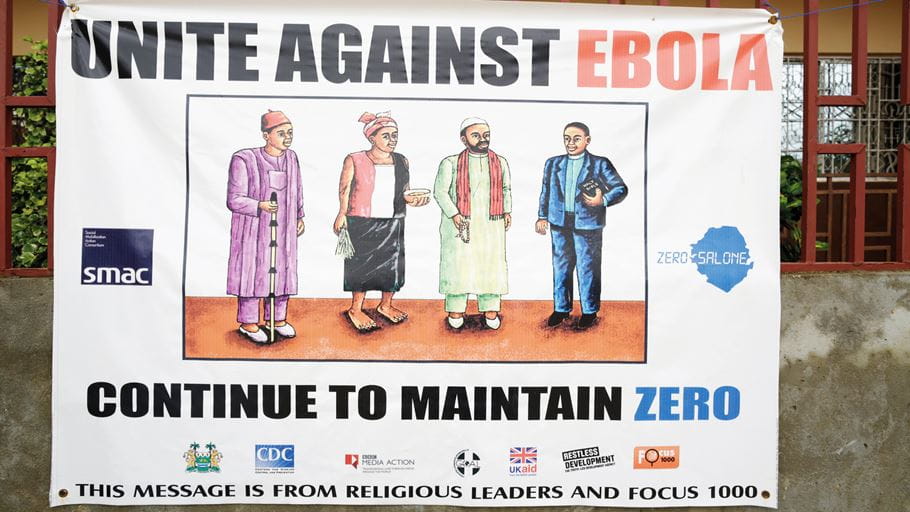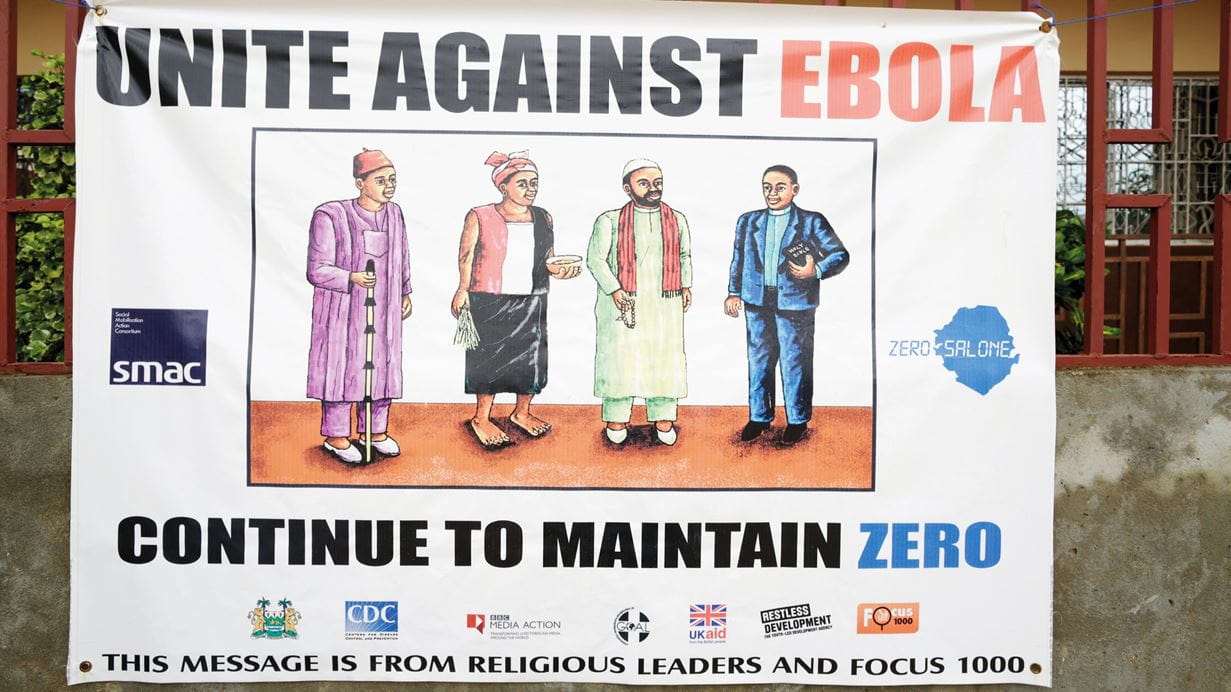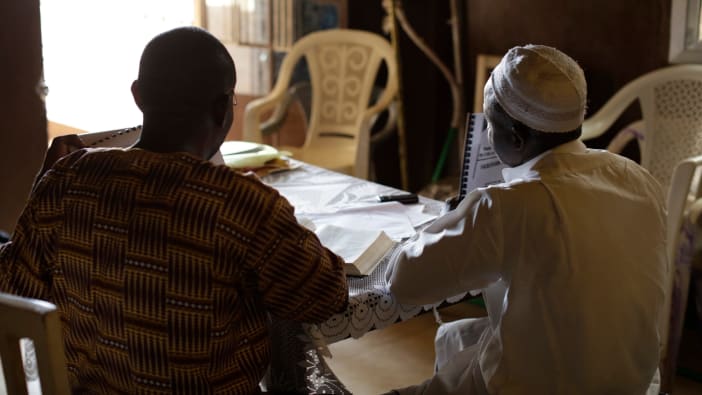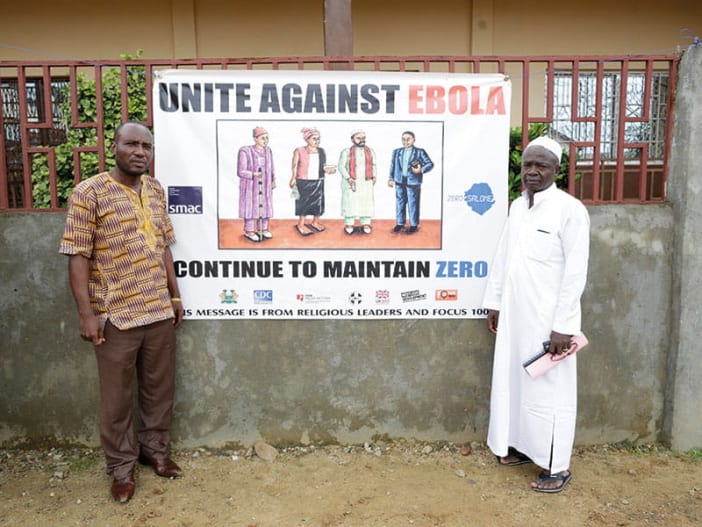During the West Africa Ebola outbreak, strict control measures were put in place to try to reduce the spread of the disease.
However, some of these measures, such as rules around isolation and burial, were difficult for people to accept. They seemed to go against cultural values and religious practices. There was also a lack of clear information. This resulted in denial of the disease and hostility towards those who were trying to contain it.
Many of those with Ebola chose to remain with their families, and burials were undertaken in secret. As a consequence, the disease continued to spread.
Game-changer
Several faith leaders were invited to meet together to discuss how best they could support their communities. First, they used religious texts to interpret health messages related to the control and prevention of Ebola. Then, as they began to conduct modified religious practices, communities began to comply with the urgent need for safe burials.
A member of United Nations staff said, ‘There was a lot of Ebola denial and it was difficult to get health staff into the area to assist. The Imam and the local chief worked together using messages from the Qur’an and the Bible to discuss behaviour change with the communities. This paved the way for health staff to get access to the county.
‘Because people trust them, when they started participating in the revised burial practices, resistance ended. The participation of religious leaders was a game-changer.’











